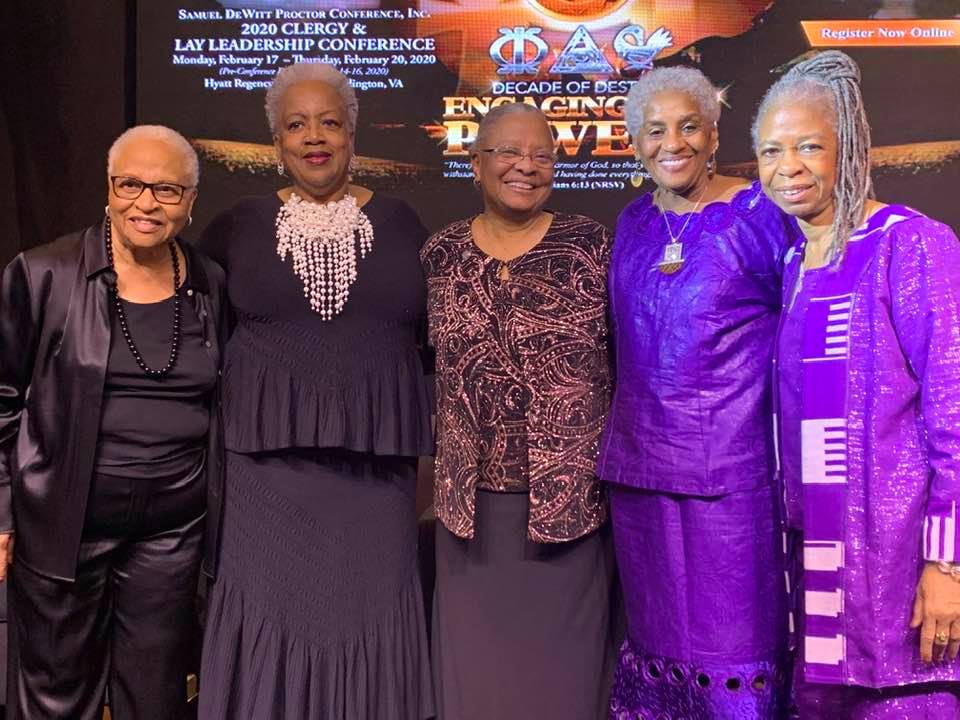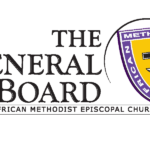AMEs Honored at SDPC
By Rev. Q. Bernard Driskell, Columnist
The Samuel DeWitt Proctor Conference, Inc. (SDPC) represents a cross-section of progressive African American faith leaders and their congregations in the United States. What makes SDPC different from other clergy and lay leaders’ conferences is that it works collaboratively with civic, corporate, and philanthropic leaders to address critical needs of human and social justice within local, national, and global communities.
Social justice is always a central theme. As representatives of the prophetic tradition of the Black Church and as we enter 2020 realizing what is at stake, this year was declared, “A Decade of Destiny: Engaging the Powers.”
We are intensely aware that as a new decade emerges, a series of seemingly overwhelming challenges come to fore. The world’s climate is changing due to global warming, which elevates the imperative to forge an ethic of climate justice. The United States’ student loan system is saddling generations with unsustainable debt burdens. Xenophobic rhetoric has infected politics domestically and aboard. We are inheriting a world that we have never seen before. Moreover, with a great deal at stake, it is ever vital that our churches and congregations use the zeitgeist of our collective stories to convey what we value, what has shaped us, and where we have been to ultimately understand the kairos moment.
The SDPC convened February 18-20. Empowerment workshop sessions were interwoven between the general plenary sessions and attendees gathered to cry, learn, glean, share, speak, heal, and be healed. One session was “Tech Talk: Reimaging Work, Wealth and Well Being” by Dr. Fallon Wilson and focused on how to create and implement models of cultivating and sustaining intergenerational wealth through creating technological ecosystems. Another session was “Let Us Live: Creating Inclusive Communities Broaden—Transwomen” by Candance Simpson and Bishop Phyllis Pennese that aid faith communities in creating and building inclusive and scared communities particularly for people who have been targeted due to their sexuality or gender are encouraged. There was also a need for sessions on organizational management, understanding investment portfolios, church finances, political organizing, and the tax code and your church’s 501(c)3 status. Such workshop sessions strengthened our churches and also prepared them for the changing political, economic, social, and religious landscapes they’ll face this decade.
The Conference’s culminating event was “Beautiful are Their Feet.” Women who stand out and have made a significant difference in the lives of the Black community were honored. These AME she-eros and heroines are the Rev. Dr. Teresa Fry Brown and Bishop Anne Henning Byfield. The Rev. Dr. Brown is the 14th historiographer of the AME Church and is the editor of The AME Review, along with being the Bandy Professor of Preaching at Candler School of Theology at Emory University, the first black woman to earn tenure at the University. Bishop Byfield is the 135th elected and consecrated bishop serving the 16th Episcopal District.
Doctor Johnnetta B. Cole, Mrs. Doris Dozier Crenshaw, and Dr. Addie Lorraine Walker, SSND were also non-cleric honorees. Dr. Cole was famously named the first black woman president of Spelman College and is the former director of the Smithsonian Institution’s National Museum of African Art. Mrs. Doris Crenshaw is an icon of the Civil Rights Movement and a Rosa Parks protégé who became a youth organizer during the Montgomery Bus Boycott. Doctor Walker is a professor and the provincial leader of the Dallas Province of the School Sisters of Notre Dame.
In the fight for social and racial justice, it has been women—many unnamed—who have stood up unafraid and challenged the powers throughout decades. It was fitting that we start this decade paying homage to the witness of women.
While SDPC is full of a rich tapestry that captures all the Africanized ethos of the black church, I think the Proctor Conference missed key moments this year particularly given their theme and location. Held in Washington, DC, it missed the moment to go to Capitol Hill as faith leaders and meet with the congressional offices of our nation’s policymakers. The theme “Engaging the Powers” must come principally from us, everyday lay leaders and clergy, living in communities where people often depend on us.
As a faith leader and lobbyist, members of Congress pay attention to voters back home and often take action on issues when asked by their constituents. Georgia’s Gubernatorial Democratic candidate, Stacey Abrams, did address the Conference and stressed the need for faith leaders to encourage their congregations about voting and completing the US Census. Attorney Abrams framed the importance for the 2020 election but attendees should have exercised the moral calling and prophetic social gospel tradition by speaking truth to the power as we were five miles away from the very citadel of political power in the US.
Practicing faith-filled citizenship is our right under the Constitution. Most importantly, the power to speak to the powers of government is given to us by God. We are serving God when we raise issues of hunger, poverty, student loan debt, voter suppression, and poverty with our government. Of course, no one will hear our voice if we don’t speak up.
The other missed moment was the Pan-African representation. I am aware that SDPC has the Pan-African Institute which seeks to connect Africans in the Diaspora. However, hearing from the African Union or one the African ambassadors, given the end of the decade of the Quad–Centennial of the transatlantic voyage of African peoples from the country of Angola in 1619 to Jamestown, would have been ideal. Such connections would have highlighted the work and legacy of the namesake, Dr. Proctor, who was appointed by President Kennedy as an associate director of the newly-established Peace Corps chapter in Africa.
SDPC is a time for renewal. Praise, prayers, songs, preaching, and service are both need and good at our conferences. However, if SDPC is the “woke” progressive conference of faith leaders, let us take our praise, prayers, songs, preaching, and service to the powers during this decade of destiny because as we already know faith without action is dead.
The Rev. Quardricos Bernard Driskell is a federal lobbyist, adjunct professor of religion and politics at The George Washington University Graduate School of Political Management, and the pastor of the historic Beulah Baptist Church in Alexandria, VA. Follow him on Twitter @q_driskell4.





